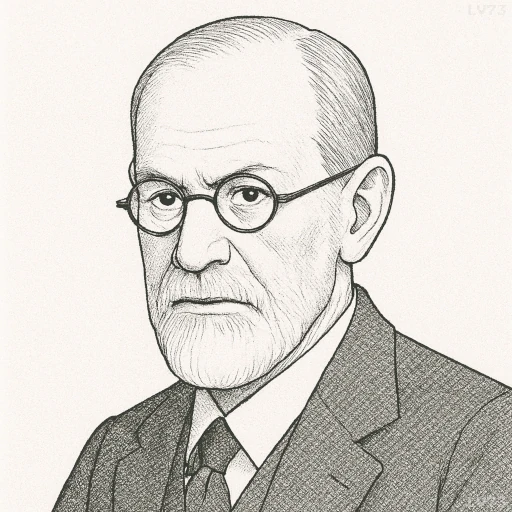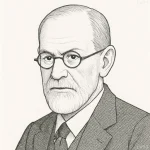“I have found little that is ‘good’ about human beings on the whole. In my experience most of them are trash, no matter whether they publicly subscribe to this or that ethical doctrine or to none at all. That is something that you cannot say aloud, or perhaps even think.”

- May 6, 1856 – September 23, 1939
- Austrian
- Neurologist, Founder of Psychoanalysis
table of contents
Quote
“I have found little that is ‘good’ about human beings on the whole. In my experience most of them are trash, no matter whether they publicly subscribe to this or that ethical doctrine or to none at all. That is something that you cannot say aloud, or perhaps even think.”
Explanation
In this unusually harsh and candid statement, Freud expresses a deep pessimism about human nature, revealing a side of his thinking shaped by personal disappointment, clinical observation, and historical trauma. He suggests that beneath surface-level morality and social conformity, most people behave in ways that are self-serving, dishonest, or morally hollow, regardless of their professed ethical beliefs. His remark also acknowledges that such a view is socially taboo, even though it may be psychologically honest.
This quote likely reflects the disillusionment Freud experienced later in life, particularly in the wake of World War I, rising anti-Semitism, and the global instability of the early 20th century. While Freud often wrote of the struggle between instinct and civilization, here he seems to suggest that civilization has done little to fundamentally elevate human character. The discrepancy between what people claim to value and how they actually behave is, to him, a sign of deep moral failure—and possibly a reason for inner conflict and collective dysfunction.
In contemporary terms, Freud’s grim assessment resonates in discussions of hypocrisy, moral disengagement, and systemic cruelty. While it may seem extreme, it serves as a stark counterbalance to idealistic or naive views of human nature. Freud’s quote challenges us to confront uncomfortable truths—not to despair, but to seek a more honest engagement with our flaws, and perhaps to build ethics based on realism rather than illusion.
Would you like to share your impressions or related stories about this quote in the comments section?
